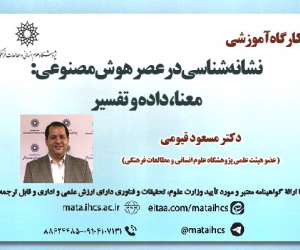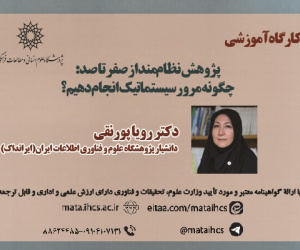قواعد فقهی پالایش آثار هنری در حکمرانی فرهنگی
آرشیو
چکیده
با گسترش روز افزون ابعاد هنری و ابزارهای انتقال آن، و تاثیرات فزاینده آن در ابعاد زندگی فردی و اجتماعی، نظیم گری و حمایت از سوی حکمرانان بیش از پیش مورد نیاز است تا جایی که برای جلوگیری از سست شدن نظام های مبتنی بر حکمرانی و نیز سیاست گزاری ها و تنظیم گری قوانین، نیازمند مبانی و چارچوب های علمی دقیق متناسب با هنجارسازی دینی می باشیم که این مهم بر عهده دانش شریف فقه است. مواجهه حکمرانی با رویدادهای هنری با توجه به نوع حکومت و ارزش های حاکم آن نیازمند پشتیبانی تئوریک است که تلاش این تحقیق با روش توصیفی- تحلیلی و اجتهادی، استخراج قواعد فقهی اعمال حکمرانی و تعیین حدود و ثغور آن بر پالایش آثار هنری است به گونه ای که محدوده حق و تکلیف حاکمیت با حق آزادی بیان و گردش اطلاعات در تعارض نباشد. در این پژوهش قواعدی مانند حرمت اهانت به شعائر و محترمات الهی، قاعده نفی سبیل، قاعده فقهی وجوب حفظ نظام، قاعده ارشاد جاهل و تنبیه غافل، قاعده حرمت تغریر جاهل یا اغراء به جهل، قاعده تقیه، قاعده لزوم دفع ضرر محتمل و قاعده حرمت اضرار به نفس، مورد بررسی قرار گرفته است و با مصادیق امروزی آن تطبیق و انطباق شده است.Jurisprudential Rules for Filtering Artistic Works in Cultural Governance
With the ever-expanding dimensions of art and its means of transmission, along with its growing influence on individual and social life, regulation and support by governing authorities have become increasingly necessary. To prevent the weakening of governance-based systems and to ensure proper policy-making and legal regulation, we require precise scientific foundations and frameworks aligned with religious norm-setting—a responsibility that falls upon the noble discipline of jurisprudence (Fiqh). The governance's approach to artistic events, depending on the type of government and its dominant values, demands theoretical backing. This research, employing a descriptive-analytical and jurisprudential (Ijtihadi) method, seeks to extract jurisprudential rules governing the application of cultural governance and define its boundaries in filtering artistic works in a way that does not conflict with the right to freedom of expression and the free flow of information. The study examines rules such as the prohibition of insulting divine symbols and sanctities (Hormat-e Ehānat be Sho’ār-e Moqaddas), the principle of negating domination (Nafy-e Sabil), the jurisprudential obligation to preserve the social order (Wujub-e Hifz-e Nezām), the duty to guide the ignorant and admonish the negligent (Ershād-e Jāhel wa Tanbih-e Ghāfel), the prohibition of deceiving or encouraging ignorance (Hormat-e Taghrir-e Jāhel ya Ighrā’ be Jahil), the principle of precautionary dissimulation (Taqiyya), the necessity of preventing probable harm (Luzum-e Daf’e Zarar-e Mohtamal), and the prohibition of self-harm (Hormat-e Izrār be Nafs). These principles are analyzed and applied to contemporary examples.







